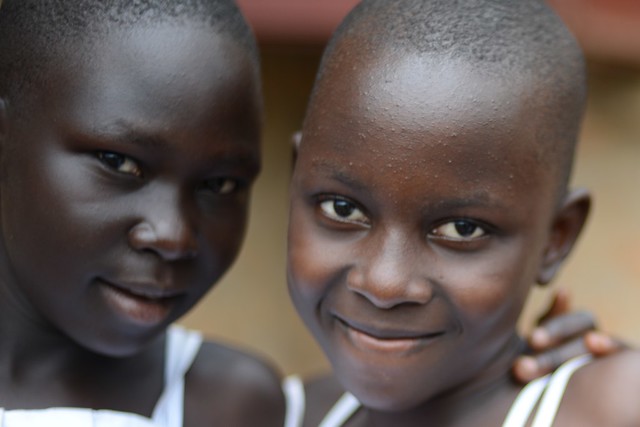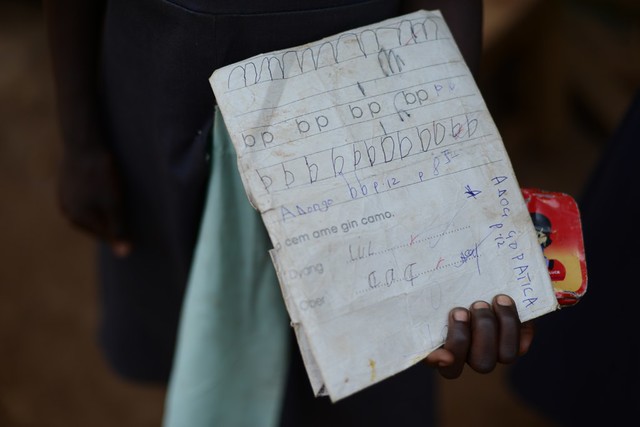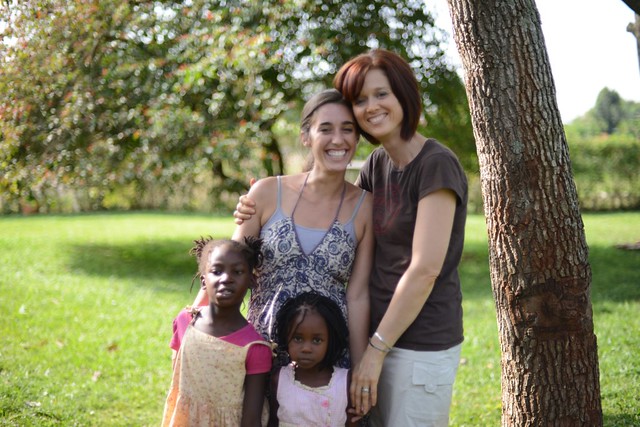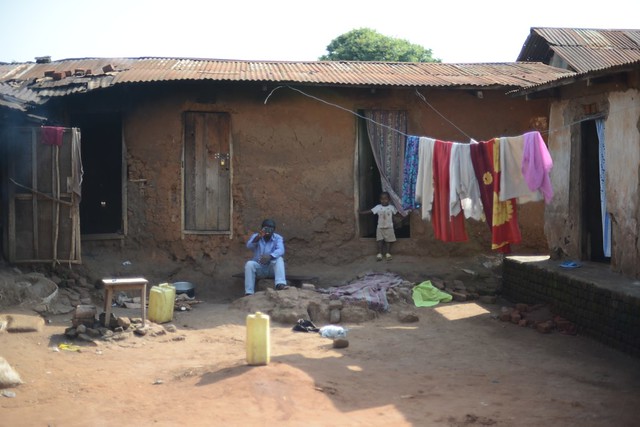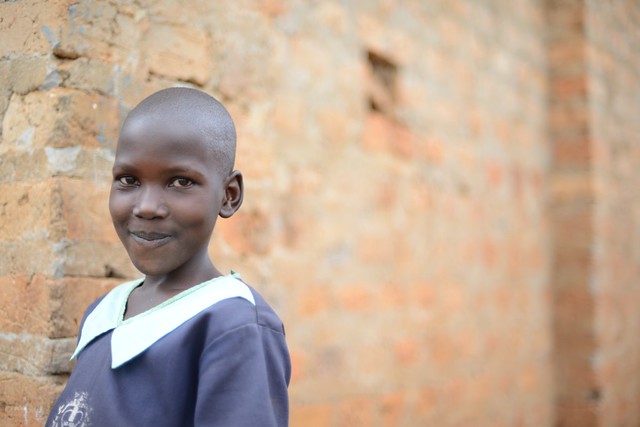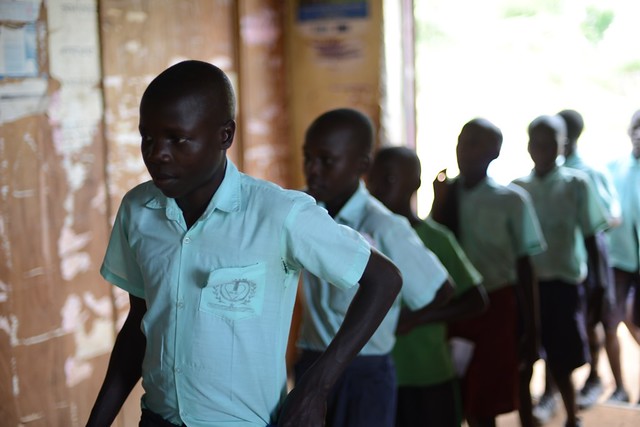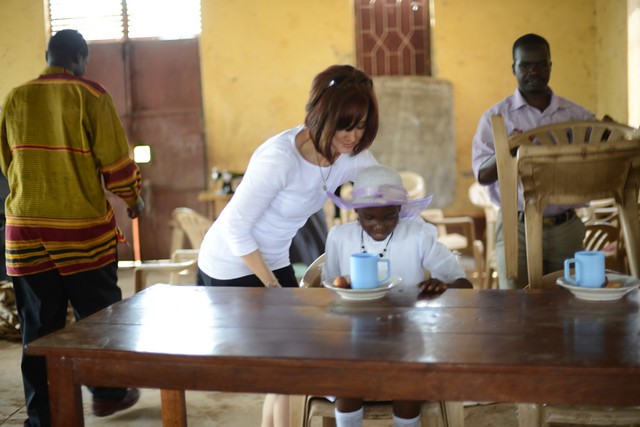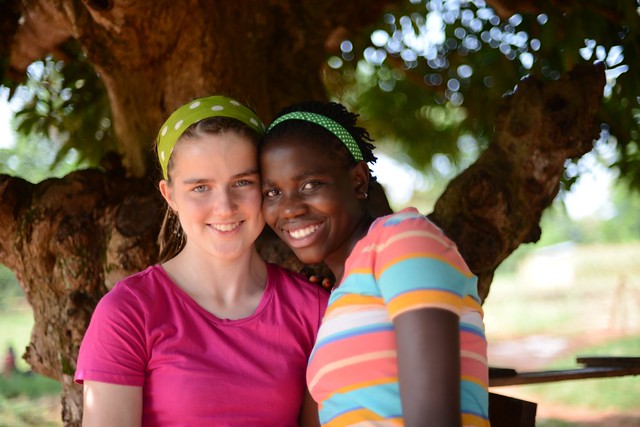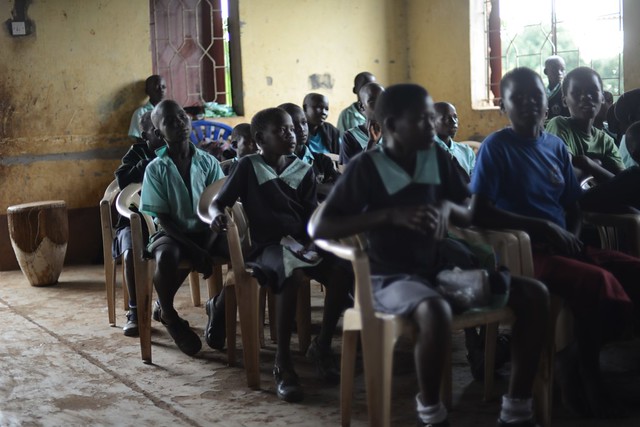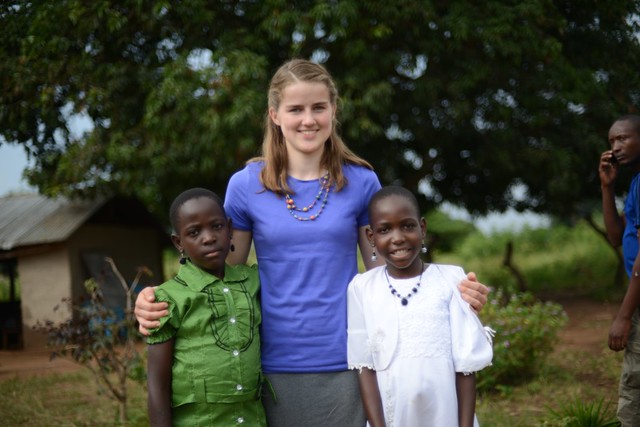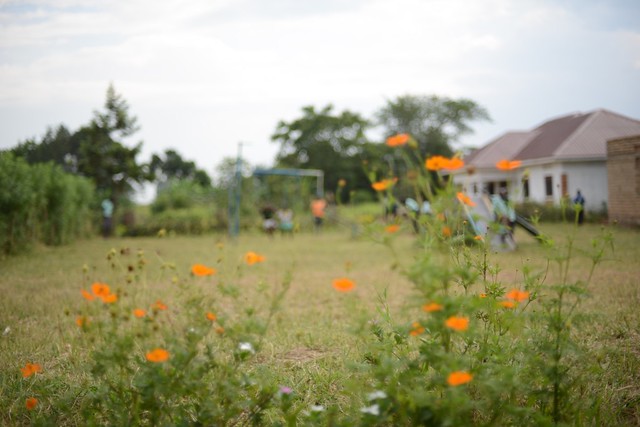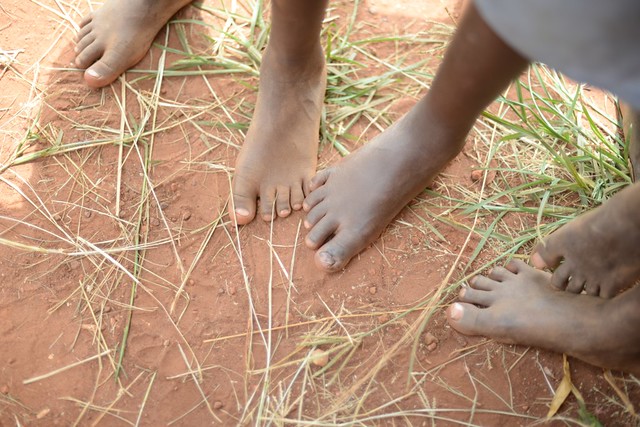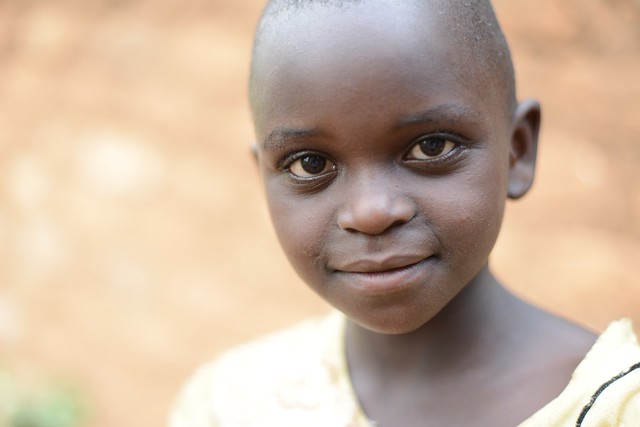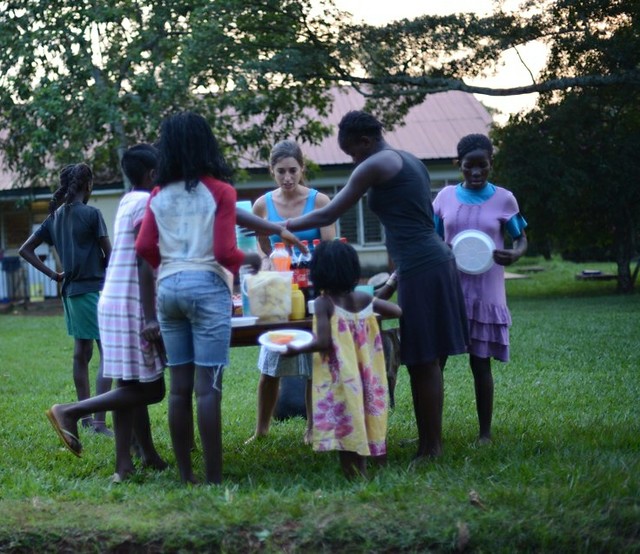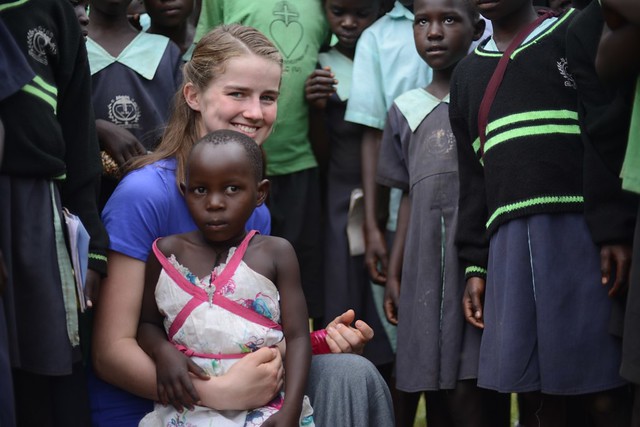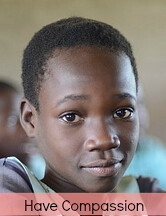“Too many of us are not living our dreams because we are living our fears.”
― Les Brown
samedi 20 juillet 2013
Holy Experience - The Research that Proves You Can Change the World
I have been meaning to post this article for you, from A Holy Experience for a while now.
No excuses, but issues with the computer...
I was touched. So WEC CAN make a difference.
From the Front Cover article of Christianity Today this month, June 2013
Sponsor a child for only a bit more than a dollar day — and the hard data proves that you change the world.
And us who get to give sacrificially — are the one who get to live richly.
You get to give the ingredient that makes a difference: HOPE — in Jesus’ name.
Coming — stories of #FarmgirlsinAfrica with Kisses from Katie … and how we fell in love…
Related #FarmGirlsinAfrica :
No excuses, but issues with the computer...
I was touched. So WEC CAN make a difference.
From the Front Cover article of Christianity Today this month, June 2013
The academic research that proves with data that child sponsorship works. Compassion
was the only child sponsorship program that willingly agreed to having
their long-term effectiveness studied — and here are the results from
Dr. Bruce Wydick, professor of economics at the University of San
Francisco. Startling:
Compassion works.“Have you considered researching the impact of child sponsorship?”Joanna Chu, became interested in the topic, in part because she was sponsoring a child with Compassion International.Chu put out some feelers with Compassion’s research director, Joel Vanderhart, who decided to risk what no other child-sponsorship organization was willing to risk at that point:to allow its program to be scrutinized.
And with that, our strategy for identifying the causal impacts of the program became clear.
We would obtain early enrollment lists from different village projects introduced during the 1980s, and track down the families of those who were first sponsored in these projects.
Then we would obtain information on the life outcomes of these formerly sponsored children—now adults—and compare them to their adult siblings who had been slightly too old to be sponsored when the program arrived in their village. In this way we would be able to control for genetics, family environment, and a host of other factors that the siblings held in common. The only difference that could affect adult life outcomes across the sample would be the fact that Providence had allowed some of these siblings and not others to be age-eligible for child sponsorship.The ResultsChu found a partner for her research project: Laine Rutledge, now a doctoral student in economics at the University of Washington.
The two graduate students spent the summer of 2008 in Uganda, where they obtained data on 809 individuals, including 188 who were sponsored as children. A couple of months after they returned, Chu and Rutledge stopped by to share the results.
Looking at the results of Compassion’s impact on educational outcomes in Uganda — I stared at the statistics on my screen to make sure I was seeing correctly.
“This is … amazing,” was all I could mumble. We tried slicing the data different ways, but each showed significant educational improvements.You could beat this data senseless, and it was incapable of showing anything other than extremely large and statistically significant impacts on educational outcomes for sponsored children.
A few months later, I presented the Uganda findings in the weekly development economics seminar at UC–Berkeley. The Berkeley seminar was familiar turf, but not a place to suffer fools gladly. We received a number of constructive comments, but the consensus was that the underlying methodology was sound. What was obvious was that the study needed external validity. Uganda was one country. We would try to expand the study.By August 2010, we had obtained data on 10,144 individuals over an array of variables: primary, secondary, and tertiary education; type and quality of adult employment; community leadership; church leadership; assets owned as adults; and a number of other variables that would measure that slippery word that economists love, development.
The results in our other five countries confirm the positive impact of Compassion’s child-sponsorship program in Uganda.In all six countries, we find that sponsorship results in better educational outcomes for children. Overall, sponsorship makes children 27 to 40 percent more likely to complete secondary school, and 50 to 80 percent more likely to complete a university education.
To put it simply, thes educational impacts of sponsorship are large —roughly equal to the substantial effects of the Rosenwald Schools program that from 1913–31 educated blacks in the Jim Crow South. They are roughly double those of Oportunidades, the celebrated conditional-cash-transfer program that gives cash to mothers in Mexico for keeping their children in school.Compassion’s results extend beyond school attendance. We found that child sponsorship means that when the child grows up, he is 14–18 percent more likely to obtain a salaried job, and 35 percent more likely to obtain a white-collar job.The academic paper containing the full methodology and results of our study appears in the current issue of the Journal of Political Economy. Edited by the department of economics at the University of Chicago, the JPE is comparable to, say, The New England Journal of Medicine for medical researchers, accepting only a small fraction of submitted papers whose results are often pertinent to the general population.
Compassion asked me to visit Colorado Springs to present the results of our research. I had an appointment with Wess Stafford, then president of Compassion.Stafford greeted me with a warm handshake and ushered me into a comfortable chair in front of his desk.
“Your program works,” I said.
“I know,” he smiled.
“But I am analyzing this data as a dispassionate scientist, not as an advocate of Compassion like yourself,” I replied. “We’re not just finding positive correlations, but substantial causal effects from the program—in every country—especially Africa. I’m wondering what is happening here. You’re a former academic. I think there is something deeper going on in the program that would interest the greater development community. I need some leads.”“Try hope,” he said.
I raised my eyebrows. “Hope?”Hope is a fuzzy concept for economists. I squinted my eyes. He explained:
For my dissertation, I asked a bunch of kids what they wanted to be when they grew up. Some were Compassion kids, some were unsponsored. There was a little bit of a difference between the two groups.
But then I asked them later what they realistically expected to be when they grew up.Here, there was a big difference between the sponsored kids and the other kids. You see, poverty causes children to have very low self-esteem, low aspirations.
The big difference that sponsorship makes is that it expands children’s views about their own possibilities.
Many of these children don’t think they are capable of much.We help them realize that they are each given special gifts from God to benefit their communities, and we try to help them develop aspirations for their future.” ~Wess Stafford, CompassionWe carried out three studies—in Bolivia, Kenya, and Indonesia—with 1,320 children. The sample included sponsored children, their unsponsored siblings, and other unsponsored children from the same communities.
So — Did sponsored children have higher aspirations than nonsponsored children who were just like them in other ways?
In each of the studies, we found that sponsored children consistently had significantly higher expectations for their own schooling than unsponsored children, even when controlling for family and other factors.
They also generally had higher expectations for adult employment. (Years later, a disproportionate number of Kenyan kids still wanted to be pilots.) Many of these findings came close to mirroring the adult differences we measured between formerly sponsored children and nonsponsored children.Overall, when we combined these characteristics into aggregated psychometric indices, controlling for other factors, we found that Compassion children’s drawings displayed significantly lower levels of hopelessness, higher levels of optimism and self-efficacy, and higher levels of overall happiness.
The puzzle pieces are beginning to fall into place: the patient nurturing of self-worth, self-expectations, dreams, and aspirations may be a critical part of helping children escape poverty.
We can’t yet establish a clear causal link between the increased levels of hopefulness and aspirations among sponsored children and their improved adult lives.But the puzzle pieces are beginning to fall into place: the patient nurturing of self-worth, self-expectations, dreams, and aspirations may be a critical part of helping children escape poverty. It is a holistic approach that secular antipoverty initiatives have largely downplayed, but an approach that Christian development groups have championed for decades.The traditional approach to development work has been to provide things for people. If people lack education, we build them schools. If they are unhealthy, we build them hospitals and provide doctors, or we drill a freshwater well. If their small businesses are stagnant, we provide microcredit so they can borrow.
While each of these interventions can be helpful in the right context, mere provision fails to address the root of poverty: the behaviors, social systems, and mindset that are created by poverty.
The key to ending poverty resides in the capacity of human beings—and their view of their own capacity—to facilitate positive change.Indeed, every time we provide something for someone else in need, we send a subtle message to them that we believe they are incapable of providing for themselves.
While some interventions are necessary, especially in the area of health, they come at a cost of reinforcing an inferiority complex among the poor. Good development organizations understand this. Along with providing some basic resources that allow children to progress farther in school, the child-development approach advocated by Compassion appears to get under the hood of human beings to instill aspirations, character formation, and spiritual direction.In short, it trains people to be givers instead of receivers.
When someone asks me what an ordinary person can do to help the poor in developing countries, I tell them about our research.“
Sponsor a child for only a bit more than a dollar day — and the hard data proves that you change the world.
And us who get to give sacrificially — are the one who get to live richly.
You get to give the ingredient that makes a difference: HOPE — in Jesus’ name.
Coming — stories of #FarmgirlsinAfrica with Kisses from Katie … and how we fell in love…
Related #FarmGirlsinAfrica :
Related:
A Letter to the North American Church: Because it is Time
Why You Are Where You Are: For Such a Time as Now
An Internet Love Story {Part 1}: How to Live Free
With Heart in our throats – and in His Hands
3 Questions to Ask a Child Sponsorship Organization Before Giving
The Front Cover article of Christianity Today this month, June 2013 - Want to Change the World? Sponsor a Child
Katie Davis’ sponsorship program – Amazima Ministries
Katie’s incredible, must-read New York Times Bestseller: Kisses from Katie
A Letter to the North American Church: Because it is Time
Why You Are Where You Are: For Such a Time as Now
An Internet Love Story {Part 1}: How to Live Free
With Heart in our throats – and in His Hands
3 Questions to Ask a Child Sponsorship Organization Before Giving
The Front Cover article of Christianity Today this month, June 2013 - Want to Change the World? Sponsor a Child
Katie Davis’ sponsorship program – Amazima Ministries
Katie’s incredible, must-read New York Times Bestseller: Kisses from Katie
Will you take one moment today and look into one face here and pray for just one by name, right now
– your real way of reaching out to a child and not turning away–
pray for the beginning of a real-life love story:
Inscription à :
Articles (Atom)

